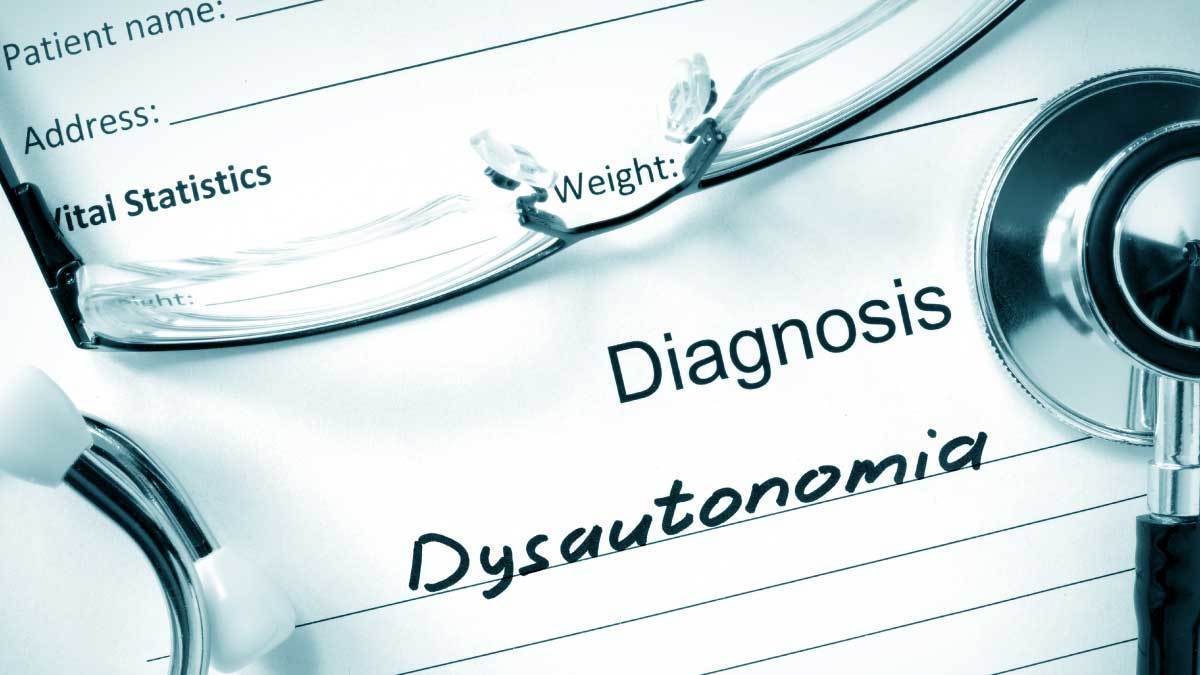
Dysautonomia is a broad term for disorders that affect the autonomic nervous system (ANS), which regulates vital functions like heart rate, blood pressure, digestion, and temperature control. When the ANS is impaired, it can lead to a wide range of symptoms, significantly impacting daily life. While dysautonomia can arise from various causes, it is increasingly recognized as a possible consequence of head injuries, including concussions. In this blog, we’ll explore different types of dysautonomia, its connection to head trauma, common symptoms, and how functional neurology can help manage and improve these conditions.
Types of Dysautonomia
There are several forms of dysautonomia, each with distinct characteristics:
-
Postural Orthostatic Tachycardia Syndrome (POTS): Characterized by an excessive heart rate increase when standing, leading to dizziness, fatigue, and brain fog.
-
Neurocardiogenic Syncope (NCS): Causes fainting due to an abnormal drop in blood pressure and heart rate in response to stress or prolonged standing.
-
Sinus Tachycardia: A condition where the heart rate is persistently elevated, even at rest, causing palpitations, shortness of breath, and fatigue.
-
Orthostatic Intolerance: Difficulty maintaining blood pressure when upright, leading to dizziness, weakness, and brain fog.
-
Hypotension: Abnormally low blood pressure that can result in lightheadedness, fainting, and reduced blood flow to the brain.
-
Autonomic Instability Post-Concussion: Some individuals develop autonomic dysfunction after a head injury, leading to issues like lightheadedness, exercise intolerance, and temperature regulation difficulties.
Disclaimer: These are just a few of the diagnoses that fall under the dysautonomia umbrella (there are about 15). Some of the conditions not listed may be as a result of infection, autoimmunity, or neurodegeneration. If you experience symptoms of one of these conditions and are curious if we work with it in our office, please do not hesitate to reach out to us.
Dysautonomia and Head Injury
Head injuries, including concussions and traumatic brain injuries (TBI), can disrupt autonomic regulation by affecting brain areas like the brainstem, cerebellum, and limbic system. The injury can lead to poor communication between the brain and body, resulting in symptoms such as:
-
Dizziness and lightheadedness, especially with positional change like standing up quickly
-
Rapid heart rate (tachycardia) or low blood pressure
-
Exercise intolerance
-
Temperature dysregulation
-
Brain fog and difficulty concentrating
-
Gastrointestinal issues like nausea and bloating
-
Chronic fatigue and poor stress tolerance
- Pressure headache
- Ear-ringing or tinnitus
How Functional Neurology Can Help
Functional neurology offers a personalized approach to addressing dysautonomia by targeting the underlying neurological dysfunction rather than just managing symptoms. Some key strategies include:
-
Neurological Rehabilitation: Specific exercises to improve brainstem and cerebellar function, enhancing autonomic stability.
-
Vestibular and Oculomotor Therapy: Helps recalibrate balance, visual processing, and spatial awareness, reducing dizziness and improving stability. **Dr. Pupo's gem: head injury will commonly affect the systems that allow our brain to perceive the world around us and ourselves within that world (what is up and down, what kind of surface you are standing on, or if your body is laying or standing). If your brain cannot perceive your body is space effectively, how can I expect to shunt blood to the right place at the right time?
-
Cardiovascular Training: Graded exercise programs designed to enhance blood flow regulation and autonomic adaptability.
-
Dietary and Lifestyle Modifications: Addressing inflammation, nutrient deficiencies, and hydration to support nervous system function.
-
Biofeedback and Breathwork: Techniques to regulate heart rate variability and improve autonomic resilience.
A Patient-Centered, Results-Driven Approach
As a board-certified chiropractic neurologist, I focus on uncovering the root cause of dysautonomia and developing targeted rehabilitation strategies. By integrating neurological, vestibular, and musculoskeletal rehabilitation with functional medicine, patients can experience lasting improvements in their symptoms and overall well-being.
If you or someone you know is struggling with dysautonomia, particularly after a head injury, functional neurology may provide the missing piece to recovery. Contact our clinic to learn more about personalized treatment options.

Benjamin Pupo
Contact Me

%20(1400%20x%20750%20px)%20(12).jpg)

